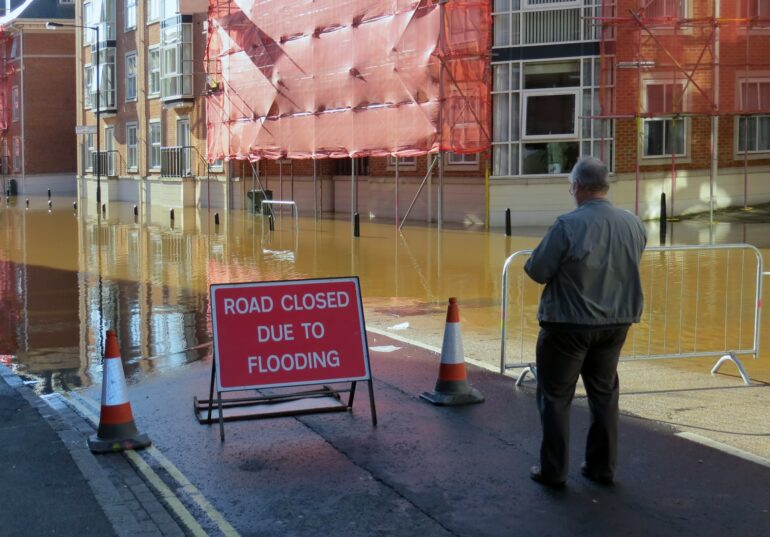Our planet has just seen its hottest month on record, with many places on fire or flooded. Few events can be directly attributed to climate change, but the likelihood of extreme weather keeps increasing—and people are noticing.
However, not everyone notices or feels this threat to the same extent. Our new research published in PLOS ONE shows there is a contrast in how people in different locations perceive this threat, largely along urban and rural lines.
Cities are affected in different ways than rural areas. For instance, there are far fewer natural surfaces in urban areas, which creates problems with rainwater drainage, increased temperatures and decreased evaporation.
Cities have been said to spearhead climate action, and climate activism such as the environmental movement inspired by Greta Thunberg, Fridays for Future, evolved primarily in cities.
On the other hand, people living in rural areas often identify strongly with the place in which they live. They are close to nature and can feel passionately about it, especially if their livelihood depends on that environment.
In our study, we wanted to find out how British people who live in cities experience the threat of climate change, compared with people who live rurally. We expected rural people to feel greater place attachment, but wondered if that also makes them perceive climate change as a greater threat. This is a connection that had not been previously explored.
Based on a representative sample of 1,071 survey respondents from across the UK, we found that people in rural areas showed higher degrees of place attachment than people living in cities, as we expected. However, we were surprised to see that the perceived threat of climate change in the most rural locations was lower.
We had not expected that outcome, so we started to dig a little deeper for possible reasons. As it turned out, there are three compelling explanations.
1. Awareness
People in rural areas may not be as aware of climate change as people in cities. This is certainly true for people in other countries like China, so it could be true for our participants, too.
However, looking more closely, the effect is mostly down to education rather than whether people live in rural areas or not. Research shows that general levels of climate awareness in the UK are quite high. But this does not necessarily correspond to readiness for action or behavioral change.
It is well documented, though, that rural inhabitants tend to have more conservative views, which could affect the way climate change is interpreted. Conservative views are often associated with less concern about the climate.
2. Experience
People in rural areas may not experience climate change in the same way as people in cities. This is because rural areas have higher levels of green space than urban areas. For example, you will feel the heat less when you are surrounded by trees.
In the past, research has shown that rural inhabitants were quite skeptical about climate change. This may also be related to their different perceptions about the threat.
3. Resilience
And rural people may be more resilient to change. This is something that has been previously observed in Ghana, where the impact of climate change on farmers’ livelihoods is paired with low climate vulnerability and high resilience to climate change.
Rural people may be aware of climate change and they may experience it like everyone else, but they may have better ways of coping with it than city dwellers because of their closer relationship with nature. This may have taught them to be more flexible in how they deal with change. After all, nature changes a lot and that could make them less worried about the major changes happening around them.
So, although we were surprised that the higher degree of place attachment in people living rurally did not necessarily lead to a higher perception of climate change threat, we can see there are good reasons for that.
Climate change is certainly worrying for most of us and sometimes linked with heightened anxiety. We will inevitably react emotionally to extreme weather that affects us. What matters is what we do in our everyday lives, how much we recognize that things are changing and whether we are willing to take action.
This could mean making a change in our own lives, getting involved in politics, or taking action locally to become more resilient when extreme weather, such as flooding, heat or violent storms, happen.
More information:
Thora Tenbrink et al, Place attachment and perception of climate change as a threat in rural and urban areas, PLOS ONE (2023). DOI: 10.1371/journal.pone.0290354
This article is republished from The Conversation under a Creative Commons license. Read the original article.
Citation:
Why your perception of climate change threats might depend on where you live (2023, September 12)



